This Review summarizes key events in the emergence of cellular complexity via eukaryogenesis in the light of developments in environmental and comparative genomics during the past decade.
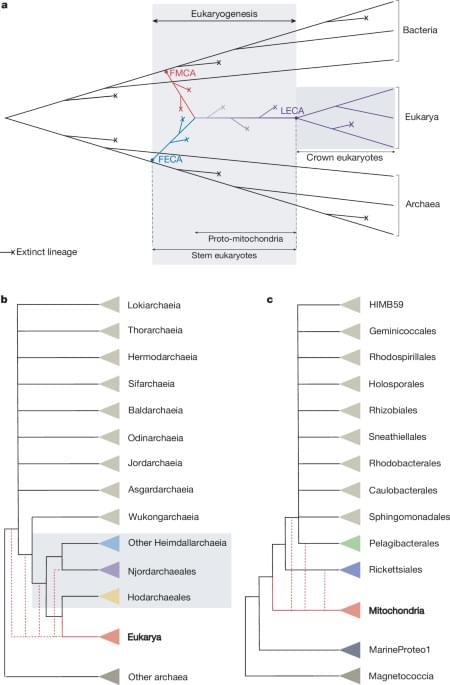

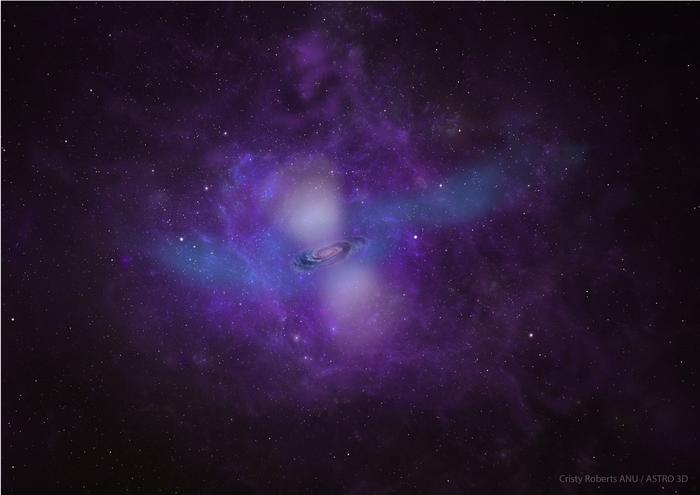
“The circumgalactic medium plays a huge role in that cycling of that gas,” said Dr. Nikole Nielsen.
What are the exact sizes of galaxies, and are they bigger than they appear in deep space images? This is what a recent study published in Nature Astronomy hopes to address as an international team of researchers investigated the dust cloud that has long been hypothesized to orbit galaxies, indicating that galaxies are bigger than they appear. This study holds the potential to help scientists better understand the formation and evolution of galaxies, along with where the galaxy ends, and open space begins.
For the study, the researchers examined what’s known as the circumgalactic medium (CGM), which is a gas reservoir that extends far beyond a galaxy’s observable boundary, within a star-forming galaxy located 270 million light-years from Earth. Using novel imaging methods with ASTRO 3D, the researchers were able to observe this galaxy’s CGM extends as far out as 100,000 light-years beyond the galaxy’s observable boundary. Additionally, the team reports the physical aspects of the gas cloud, which is comprised of oxygen and hydrogen, changed as the gas cloud extended farther out.
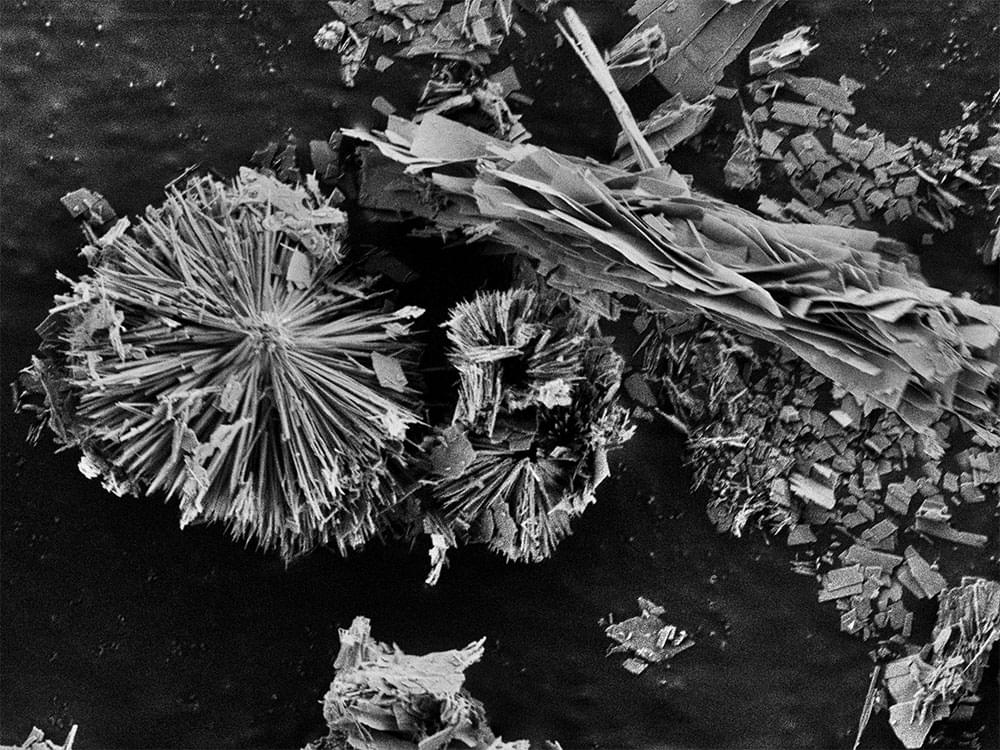
The MXene class of materials has many talents. An international team led by HZB chemist Michelle Browne has now demonstrated that MXenes, properly functionalised, are excellent catalysts for the oxygen evolution reaction in electrolytic water splitting. They are more stable and efficient than the best metal oxide catalysts currently available. The team is now extensively characterising these MXene catalysts for water splitting at the Berlin X-ray source BESSY II and Soleil Synchrotron in France.
The findings have been published in Journal of Materials Chemistry A (“Enhancing the Oxygen Evolution Reaction activity of CuCo based Hydroxides with V 2 CTx MXene”).
The surface of a vanadium carbide MXene has been examined by Scanning Electron Microscopy. The beautiful structures are built by cobalt copper hydroxide molecules. (Image: B. Schmiedecke, HZB)
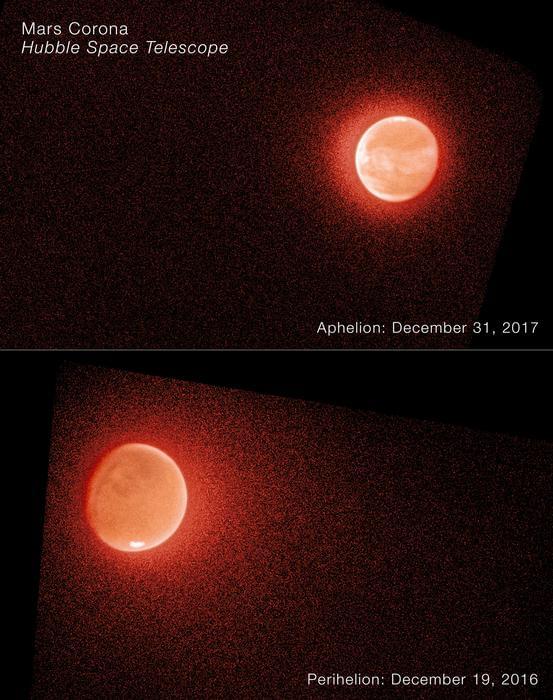
“In recent years scientists have found that Mars has an annual cycle that is much more dynamic than people expected 10 or 15 years ago,” said Dr. John Clarke.
What happened to all the liquid water on Mars and what can this teach us about Earth-like exoplanets? This is what a recent study published in Science Advances hopes to address as an international team of researchers investigated the atmospheric and atomic processes responsible for Mars losing its water over time. This study holds the potential to help researchers better understand the evolution of Mars, specifically regarding the loss of water, and what implications this holds for Earth-like exoplanets.
For the study, the researchers used a combination of data from NASA’s Mars Atmosphere and Volatile Evolution (MAVEN) and Hubble Space Telescope (HST) spacecraft to measure the ratio of hydrogen and deuterium that escapes from Mars over three Martian years, with each Martian year comprising 687 Earth days. Deuterium is also called “heavy hydrogen” since it is a hydrogen atom with a neutron in its nucleus, making its mass greater than hydrogen.
Since deuterium is heavier, this means hydrogen is lost to space faster, and measuring this present-day loss can help scientists determine how much was lost in Mars’s ancient past. Additionally, Mars’ orbit is more elliptical than Earth, meaning it orbits farther away from the Sun at certain times of the year, and this could also contribute to hydrogen loss, as well. In the end, the team found that this ratio changes as Mars is closer to the Sun and farther away, which challenges longstanding hypotheses regarding Mars’s atmospheric evolution.
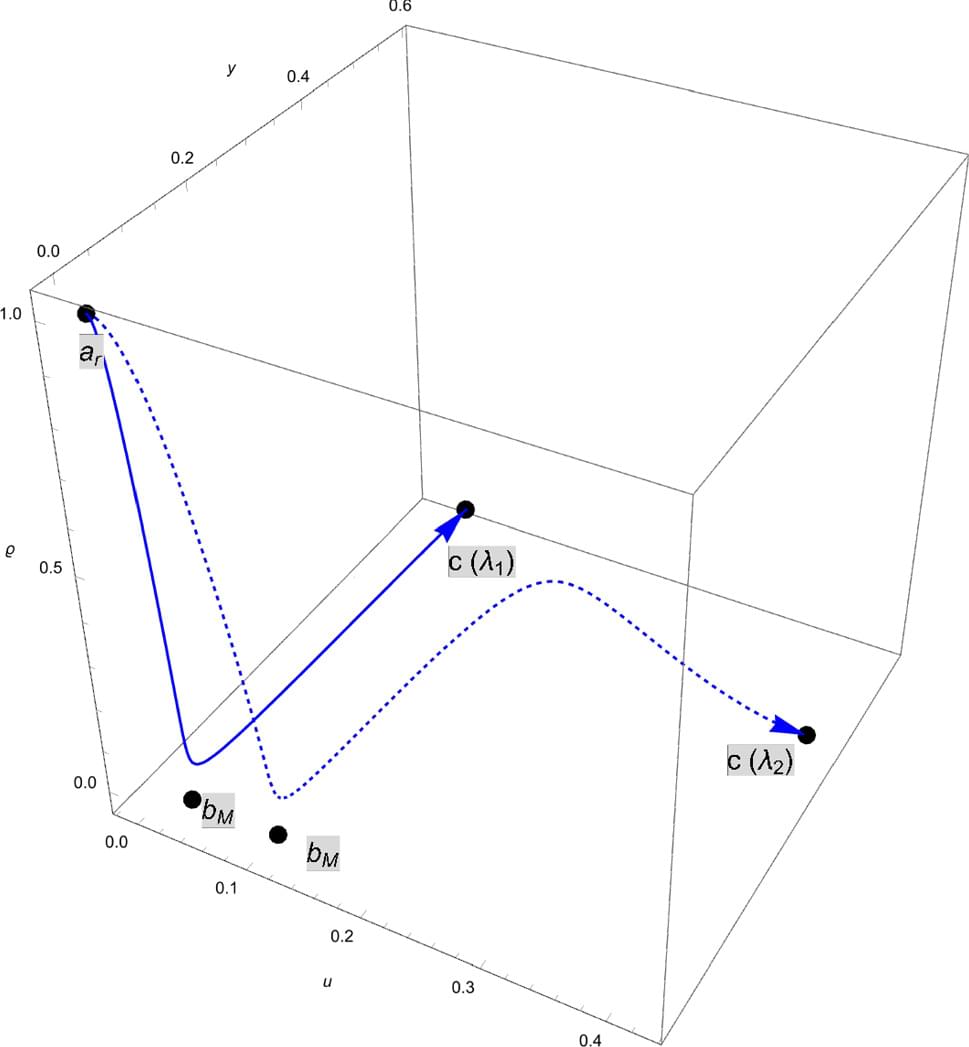
We revise the dynamics of interacting vector-like dark energy, a theoretical framework proposed to explain the accelerated expansion of the universe. By investigating the interaction between vector-like dark energy and dark matter, we analyze its effects on the cosmic expansion history and the thermodynamics of the accelerating universe. Our results demonstrate that the presence of interaction significantly influences the evolution of vector-like dark energy, leading to distinct features in its equation of state and energy density. We compare our findings with observational data and highlight the importance of considering interactions in future cosmological studies.
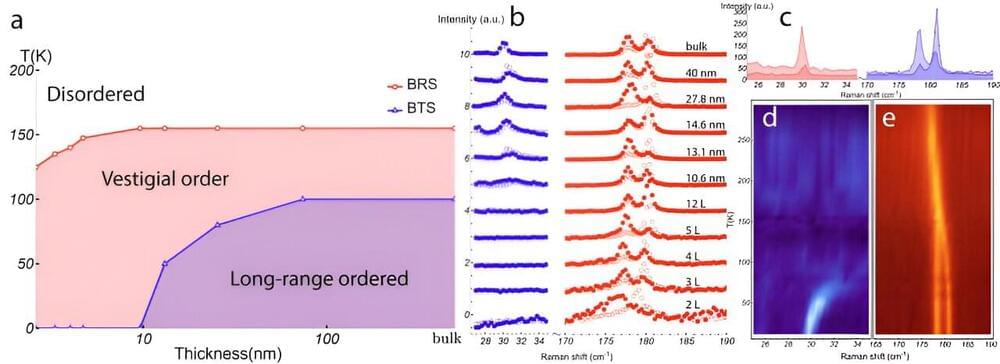
In the case of NiPS3, the researchers observed an intermediate symmetry breaking which leads to a vestigial order. Just as the term “vestigial” refers to the retention of certain traits during the process of evolution, the vestigial order here can also be viewed as the retention during the process of symmetry breaking.
This happens when the primary magnetic long-range order state melts or breaks down into a simpler form, in the NiPS3 case, a 2D vestigial order state (known as Z3 Potts-nematicity), as the material is thinned. Unlike conventional symmetry breaking, which involves the breaking of all symmetries, vestigial order only involves the breaking of some symmetries.
While there are numerous examples from a theoretical standpoint, experimental realizations of vestigial order have remained challenging. However, the investigation of this 2D magnetic material has shed the first light on this issue, demonstrating that such a phenomenon can be observed through dimension crossover.
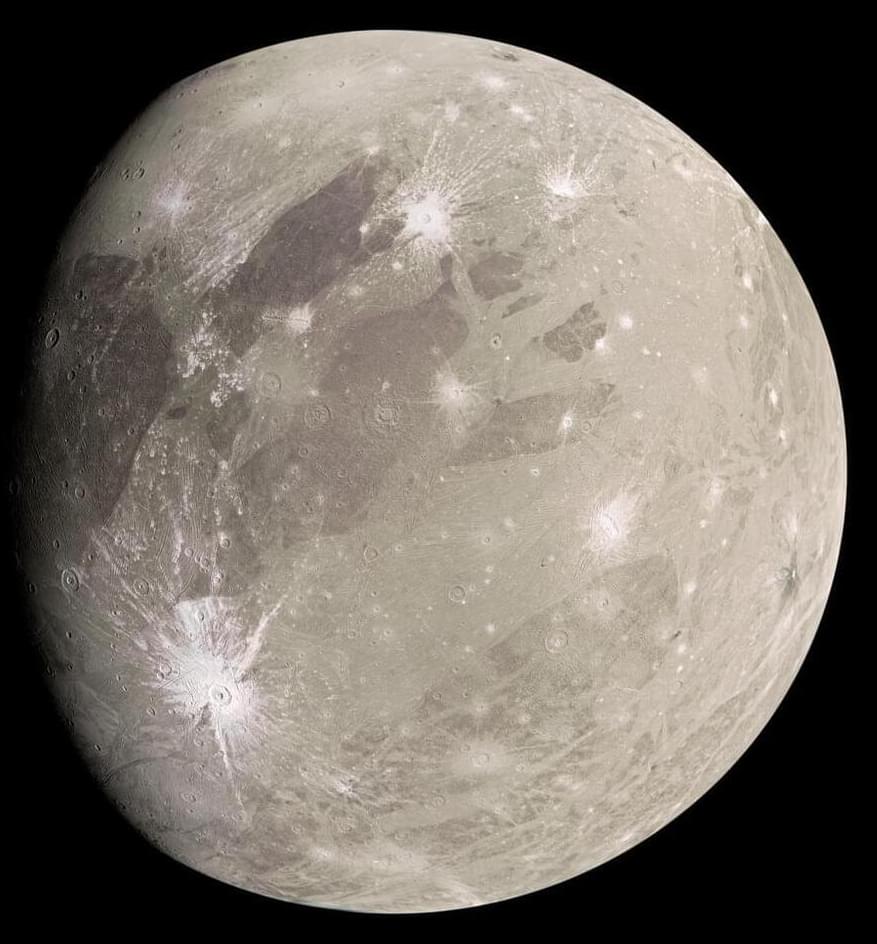
How did a giant impact 4 billion years ago affect Jupiter’s moon, Ganymede? This is what a recent study published in Scientific Reports hopes to address as a researcher from Kobe University investigated the geological changes known as a “furrow system” that Ganymede has exhibited since being struck by a giant asteroid in its ancient past, along with confirming previous hypotheses regarding the size of the asteroid. This study holds the potential to help scientists better understand how the very-active early solar system not only contributed to Ganymede’s but how such large impacts could have influenced the evolution of planetary bodies throughout the solar system.
“The Jupiter moons Io, Europa, Ganymede and Callisto all have interesting individual characteristics, but the one that caught my attention was these furrows on Ganymede,” said Dr. Naoyuki Hirata, who is an assistant professor in the Department of Planetology at Kobe University and sole author of the study. “We know that this feature was created by an asteroid impact about 4 billion years ago, but we were unsure how big this impact was and what effect it had on the moon.”
For the study, Dr. Hirata used a series of mathematical calculations to ascertain the size of the object that impacted Ganymede billions of years ago along with the angle of impact that produced the furrow system. In the end, Dr. Hirata determined that the impactor’s radius was approximately 93 miles (150 kilometers) and the angle of impact was potentially between 60 to 90 degrees, resulting in the furrows that overlay a significant portion Ganymede’s surface. For context, Ganymede is not only the largest moon in the solar system at a radius of 1,637 miles (2,634 kilometers), but it is also larger than the planet Mercury.
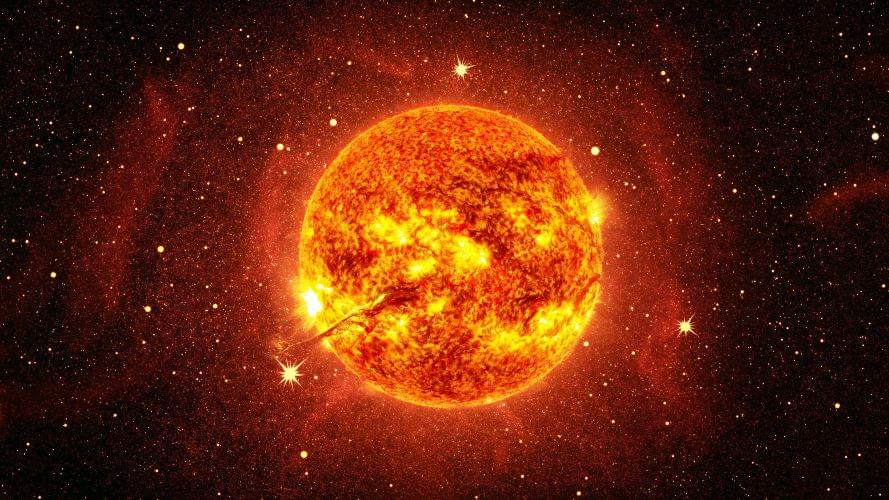
A new study published in The Astrophysical Journal, led by Assistant Professor of Astronomy Rana Ezzeddine and UF alumnus Jeremy Kowkabany, with collaborators, reports the discovery of a star that challenges astronomers’ understanding of star evolution and formation of chemical elements, and could suggest a new stage in their growth cycle.
It is widely accepted that as stars burn, they lose lighter elements like lithium in exchange for heavier elements like carbon and oxygen, but an analysis of this new star revealed that not only was its lithium content high for its age, but was higher than the normal level for any star at any age.
This star, named J0524-0336 based on its coordinates in space, was discovered recently by Ezzeddine as part of a different study that used surveying to look for older stars in the Milky Way. It is an evolved star, meaning that it is in the later stages of its “life” and is beginning to grow unstable. That also means that it is much larger and brighter than most other stars of its type, estimated to be about 30 times the size of the sun.
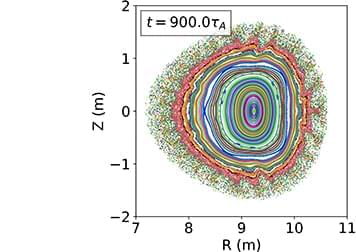
We use the new simulation capabilities of the extended-magnetohydrodynamic (MHD) code, M3D-C1, to investigate the nonlinear MHD properties of a reactor-scale quasisymmetric stellarator equilibrium. Our model captures the self-consistent evolution of the magnetic field, temperature, density, and flow profiles without imposing restrictions on the structure of the first. We include the effects of resistivity using a realistic temperature-dependent Spitzer model, along with a model for heat transport that captures the key physical characteristic, namely, strongly anisotropic diffusion in directions perpendicular and parallel to the magnetic field. We consider a quasi-axisymmetric, finite-pressure equilibrium that was optimized for self-consistent bootstrap current, quasi-symmetry, and energetic particle confinement. Our assessment finds that the equilibrium is highly unstable to interchange-like pressure-driven instabilities near the plasma edge. The initially unstable modes rapidly destabilize other modes in the direction of the N-fold rotational symmetry (toroidal, in this case). For this equilibrium, N = 2, meaning destabilization of a large number of even-numbered toroidal Fourier modes. Thus, field-periodicity is likely to be an important factor in the nonlinear MHD stability characteristics of optimized stellarators.
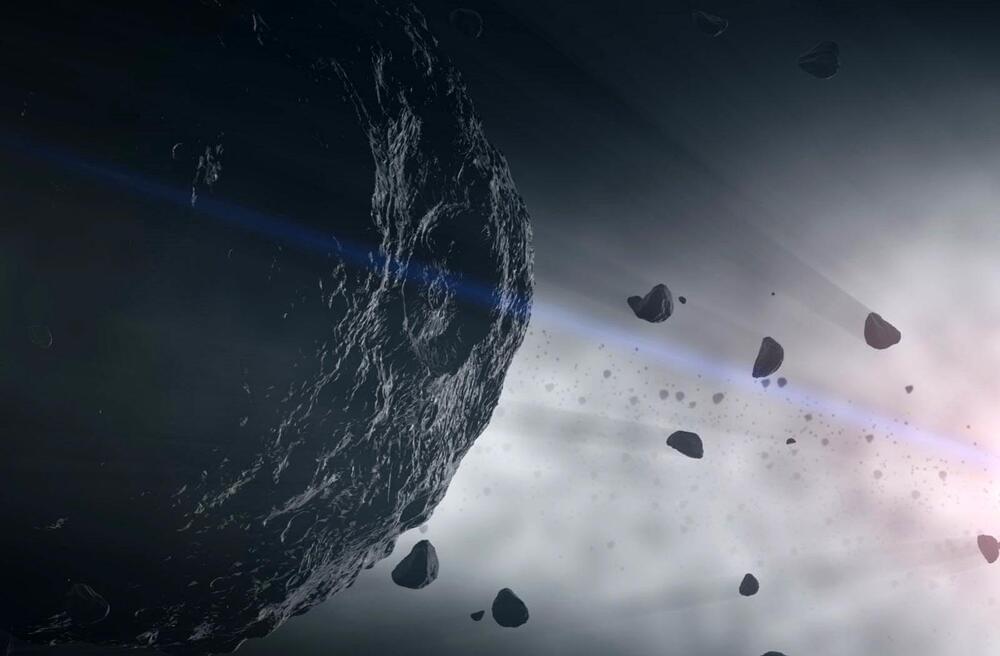
A University of Maryland-led study reveals new details about asteroid dynamics following NASA ’s DART mission, which intentionally collided with the asteroid moon Dimorphos in 2022. The impact significantly altered Dimorphos’ trajectory and shape, leading to unexpected gravitational behaviors. These findings challenge previous assumptions about asteroid evolution and could influence future planetary defense strategies and space missions, as researchers continue to assess the system’s stability and potential for further exploration.
When NASA’s Double Asteroid Redirection Test (DART) spacecraft collided with an asteroid moon called Dimorphos in 2022, the moon was significantly deformed—creating a large crater and reshaping it so dramatically that the moon derailed from its original evolutionary progression—according to a new study. The study’s researchers believe that Dimorphos may start to “tumble” chaotically in its attempts to move back into gravitational equilibrium with its parent asteroid named Didymos.
“For the most part, our original pre-impact predictions about how DART would change the way Didymos and its moon move in space were correct,” said Derek Richardson, a professor of astronomy at the University of Maryland and a DART investigation working group lead. “But there are some unexpected findings that help provide a better picture of how asteroids and other small bodies form and evolve over time.”